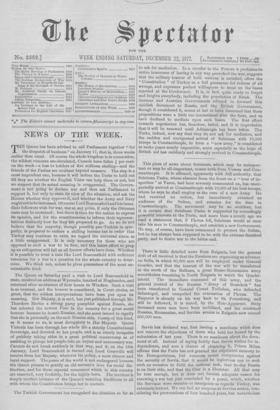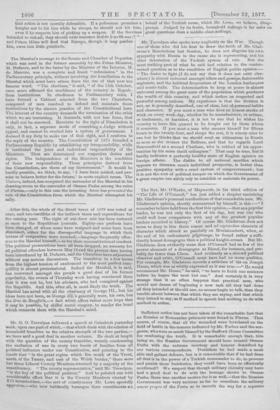Servia has declared war, first issuing a manifesto which does
not remove the objections of those who hold her bound by the submission of last year. There is no manliness about the docu- ment at all. Instead of saying boldly that Servia wishes for in- dependence, and sees a chance of obtaining it, Prince Milan affirms that the Porte has not granted the stipulated amnesty to the Herzegovinians, but concocts secret conspiracies against the security of Servia, that it would be inglorious not to seek such an occasion to fulfil the national task, that to-day Russia is on their side, and that the Czar is a liberator. All that may be true enough, but it does not furnish adequate reason for renewing a war but just concluded by a peace, which, whether the Servians were enemies or insurgents as regards Turkey, was extremely lenient. We can feel no surprise at Servian action, con- sidering the provocations of four hundred years, but nevertheless
that action is not morally defensible. If a policeman promises a burglar not to hit him while ho stoops, he should not hit him,
even if he suspects him of picking up a weapon. If the Servians intended to risk all, they should IlliVe'marenea befole feevEtAsnari'-" • and Prince Milan will find that Europe, though it may pardon him, owes him little gratitude.







































